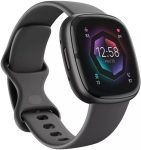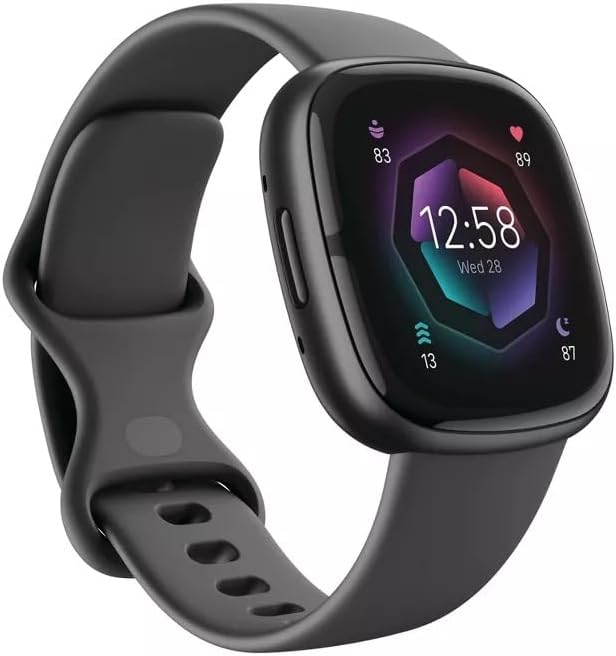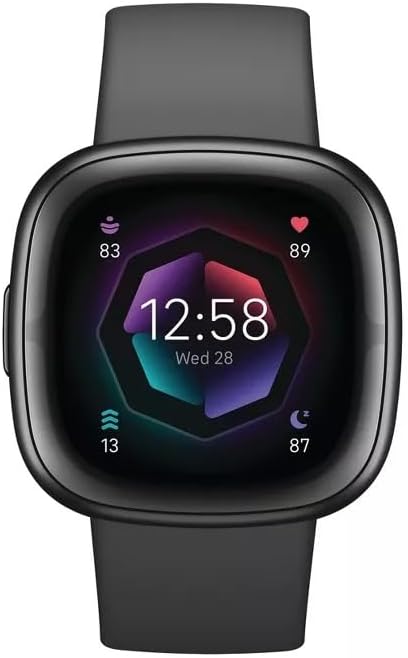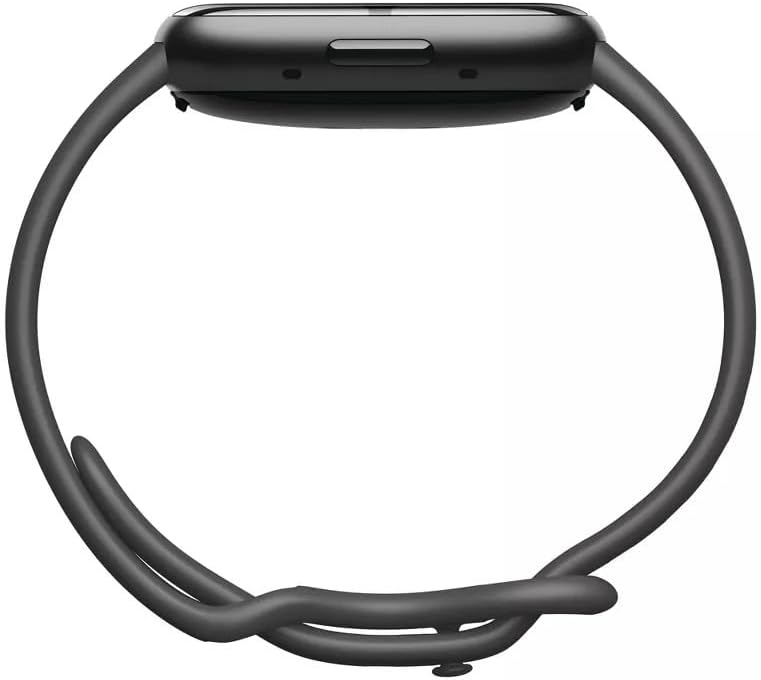
Black Friday Fitbit Sense 2 Advanced Health and Fitbit Review – Oemiu
Black Friday Fitbit Sense 2 and Fitbit Review: Unlocking Your Health Potential
The holiday season is rapidly approaching, and with it comes the annual frenzy of Black Friday deals. For fitness enthusiasts and those looking to prioritize their well-being, this presents a golden opportunity to snag a top-tier health and fitness tracker at a discounted price. This year, the spotlight shines brightly on the Fitbit Sense 2, a device packed with advanced features designed to provide comprehensive insights into your overall health. But with so many options available, is the Sense 2 the right choice for you? And how does it stack up against other Fitbits on the market? This in-depth review will explore the capabilities of the Sense 2, delve into the broader Fitbit ecosystem, and help you navigate the Black Friday sales to make an informed decision.
Exploring the Fitbit Sense 2: An Advanced Health Companion
The Fitbit Sense 2 represents a significant leap forward in wearable health technology. It goes beyond simple step tracking and calorie counting, offering a suite of sophisticated sensors and algorithms to monitor your stress levels, heart health, sleep quality, and more. At its core, the Sense 2 is designed to empower you with knowledge about your body, enabling you to make proactive choices to improve your well-being. One of the key differentiators of the Sense 2 is its advanced stress management capabilities. Utilizing a continuous electrodermal activity (cEDA) sensor, the device tracks changes in your skin’s sweat levels, providing real-time insights into your body’s stress response. When the Sense 2 detects a potential stress event, it prompts you to take action, offering guided breathing exercises or mindfulness meditations to help you regain composure. This proactive approach to stress management is particularly valuable in today’s fast-paced world, where chronic stress can have detrimental effects on both physical and mental health.
Beyond stress monitoring, the Sense 2 excels in heart health tracking. It boasts a comprehensive suite of features, including continuous heart rate monitoring, ECG (electrocardiogram) functionality, and irregular heart rhythm notifications. The ECG app allows you to take on-the-spot readings of your heart’s electrical activity, providing valuable data that can be shared with your doctor to aid in the diagnosis of potential heart conditions like atrial fibrillation (AFib). The irregular heart rhythm notifications feature continuously monitors your heart rate in the background, alerting you if it detects any unusual patterns that may warrant further investigation. This early detection capability can be life-saving, as AFib often goes undetected until it causes a serious health event. Furthermore, the Sense 2 offers in-depth sleep tracking, analyzing your sleep stages (light, deep, REM), sleep score, and sleep disturbances. By understanding your sleep patterns, you can identify factors that may be impacting your sleep quality and make adjustments to your sleep routine accordingly. For example, you might discover that you consistently experience poor sleep on nights when you consume caffeine late in the day. The Sense 2 also tracks your blood oxygen saturation (SpO2) levels while you sleep, which can be an indicator of potential sleep apnea or other respiratory issues. This comprehensive sleep analysis provides valuable insights that can help you optimize your sleep for improved health and energy levels. The device seamlessly integrates with the Fitbit app, which presents your health data in a clear and intuitive manner, making it easy to track your progress and identify trends over time. You can also use the app to set goals, participate in challenges, and connect with friends and family for added motivation.
The Fitbit Sense 2 is more than just a fitness tracker; it’s a holistic health companion designed to empower you with the knowledge and tools you need to take control of your well-being. With its advanced stress management capabilities, comprehensive heart health tracking, and in-depth sleep analysis, the Sense 2 offers a wealth of insights into your body’s inner workings. And with Black Friday just around the corner, now is the perfect time to invest in your health and well-being with this powerful device.
A Deep Dive into Fitbit Features and Functionality
The world of Fitbits extends far beyond the Sense 2, encompassing a diverse range of devices tailored to different needs and preferences. Understanding the core features and functionality that define the Fitbit ecosystem is crucial when making a purchasing decision, especially during the Black Friday sales. At the heart of the Fitbit experience lies its robust activity tracking capabilities. All Fitbit devices, from the entry-level Inspire series to the flagship Sense 2, accurately track your steps, distance traveled, calories burned, and active minutes throughout the day. This data provides a comprehensive overview of your daily activity levels, helping you stay motivated and achieve your fitness goals. Whether you’re a seasoned athlete or just starting your fitness journey, Fitbit’s activity tracking features offer valuable insights into your movement patterns and can help you identify areas for improvement. For example, if you notice that you’re consistently falling short of your daily step goal, you might consider incorporating more walking into your routine or taking the stairs instead of the elevator. The core activity tracking features are complemented by a range of additional functionalities, including automatic exercise recognition. This feature intelligently detects when you’re engaged in various activities, such as running, swimming, or cycling, and automatically records the duration, intensity, and calories burned. This eliminates the need to manually start and stop tracking your workouts, making it easier to seamlessly integrate fitness into your daily life. Fitbit also offers a variety of guided workout programs and personalized fitness plans through its premium subscription service, providing expert guidance and motivation to help you achieve your specific fitness goals.
Sleep tracking is another cornerstone of the Fitbit experience. All Fitbit devices track your sleep stages (light, deep, REM), sleep score, and sleep disturbances, providing valuable insights into your sleep patterns. The sleep score is a composite metric that summarizes your overall sleep quality, taking into account factors such as sleep duration, sleep depth, and restlessness. By monitoring your sleep score over time, you can identify trends and patterns that may be affecting your sleep quality and make adjustments to your sleep routine accordingly. For example, you might discover that you consistently experience poor sleep on nights when you consume alcohol before bed. The Fitbit app also provides personalized insights and recommendations based on your sleep data, helping you optimize your sleep for improved health and energy levels. Many Fitbit devices also offer advanced sleep features, such as blood oxygen saturation (SpO2) tracking, which can be an indicator of potential sleep apnea or other respiratory issues. This comprehensive sleep analysis provides valuable insights that can help you identify and address potential sleep problems.
Beyond activity and sleep tracking, Fitbits offer a range of additional features, including smartphone notifications, music control, and contactless payments (on select models). Smartphone notifications allow you to receive calls, texts, and app alerts directly on your wrist, keeping you connected without having to constantly check your phone. Music control allows you to control your music playback directly from your Fitbit, making it easy to skip tracks, adjust the volume, or pause your music while you’re working out. Contactless payments allow you to make purchases using your Fitbit, eliminating the need to carry your wallet or phone. This feature is particularly convenient for runners or cyclists who don’t want to be weighed down by extra belongings. The specific features and functionality offered by each Fitbit device vary depending on the model and price point. However, all Fitbits share a common goal: to empower you with the knowledge and tools you need to live a healthier and more active life. With Black Friday deals offering significant discounts on a wide range of Fitbit devices, now is the perfect time to find the perfect Fitbit to meet your individual needs and preferences. Consider what features are most important to you, such as advanced stress management, ECG functionality, or contactless payments, and then compare the available models to find the best fit for your lifestyle.
Comparing Fitbit Models: Finding the Right Fit for You
Navigating the diverse landscape of Fitbit models can be overwhelming, especially when you’re trying to make a decision during the Black Friday sales. Understanding the key differences between the various models is essential to finding the right fit for your individual needs and budget. The Fitbit lineup can be broadly categorized into three main tiers: entry-level trackers, mid-range fitness trackers, and advanced health smartwatches. Entry-level trackers, such as the Inspire series, are designed for users who are primarily interested in basic activity tracking and sleep monitoring. These devices typically offer a slim and lightweight design, long battery life, and essential features such as step tracking, calorie counting, and sleep analysis. They are an excellent option for beginners who are just starting their fitness journey or for users who prefer a minimalist device without a lot of bells and whistles. Mid-range fitness trackers, such as the Charge series, offer a more comprehensive set of features, including built-in GPS, heart rate monitoring, and smartphone notifications. These devices are designed for users who are more serious about their fitness and want to track their workouts with greater accuracy. The built-in GPS allows you to track your distance, pace, and route during outdoor activities, while the heart rate monitor provides valuable insights into your cardiovascular health. Smartphone notifications keep you connected without having to constantly check your phone. Advanced health smartwatches, such as the Sense 2 and Versa series, represent the pinnacle of Fitbit technology. These devices offer a wide range of advanced features, including ECG functionality, stress management tools, blood oxygen saturation (SpO2) tracking, and on-wrist calling. They are designed for users who are looking for a comprehensive health and fitness companion that can provide deep insights into their overall well-being. The ECG functionality allows you to take on-the-spot readings of your heart’s electrical activity, while the stress management tools help you identify and manage your stress levels. The SpO2 tracking monitors your blood oxygen saturation levels while you sleep, and the on-wrist calling allows you to make and receive calls directly from your smartwatch.
Here’s a table summarizing some key differences between popular Fitbit models:
| Model | Key Features | Price Range (MSRP) | Target User |
|---|---|---|---|
| Fitbit Inspire 3 | Step tracking, calorie counting, sleep monitoring, heart rate tracking, activity recognition, smartphone notifications | $99.95 | Beginners and casual users looking for basic activity tracking |
| Fitbit Charge 5 | Built-in GPS, heart rate monitoring, ECG app, EDA scan app for stress management, sleep tracking, Active Zone Minutes | $149.95 | Fitness enthusiasts who want more advanced tracking features |
| Fitbit Sense 2 | All Charge 5 features plus continuous EDA tracking, skin temperature sensor, on-wrist calling, Google Assistant/Alexa integration | $299.95 | Health-conscious users seeking comprehensive health monitoring |
| Fitbit Versa 4 | Heart rate tracking, activity tracking, sleep tracking, built-in GPS, on-wrist calling, voice assistant | $229.95 | Users seeking a balance of fitness and smartwatch features |
When choosing a Fitbit model, it’s important to consider your individual needs and priorities. If you’re primarily interested in basic activity tracking and sleep monitoring, an entry-level tracker like the Inspire 3 may be the best option for you. If you’re a fitness enthusiast who wants more advanced tracking features, a mid-range tracker like the Charge 5 may be a better fit. And if you’re looking for a comprehensive health and fitness companion that can provide deep insights into your overall well-being, an advanced health smartwatch like the Sense 2 may be the right choice. During the Black Friday sales, be sure to compare prices across different retailers to find the best deal. Many retailers offer significant discounts on Fitbit devices during this time, so you can often save a considerable amount of money by shopping around. Consider features like battery life, screen size, and comfort when making your decision. Also, explore other resources such as Fitbit product reviews, and compare user experience before purchasing your preferred device.
Maximizing Your Black Friday Fitbit Deal: Tips and Strategies
Black Friday can be a chaotic time, but with a little planning and strategy, you can maximize your chances of snagging a great deal on the perfect Fitbit for your needs. First and foremost, do your research ahead of time. As discussed previously, understand the different Fitbit models, their features, and their typical price points. This will allow you to quickly identify genuine deals when you see them. Don’t wait until Black Friday to start your research. Start now by reading online reviews, comparing specifications, and watching videos. This will give you a solid understanding of the Fitbit landscape and help you make an informed decision when the sales begin. Next, make a list of the specific Fitbit models that you’re interested in. This will help you stay focused and avoid getting distracted by other tempting deals. Prioritize your list based on your needs and budget. Once you have your list, start monitoring prices at different retailers. Many retailers start offering pre-Black Friday deals in the weeks leading up to the event. Keep an eye out for these deals and be ready to pounce if you see a price that you like. Be sure to compare prices across different retailers, as prices can vary significantly. Check both online retailers and brick-and-mortar stores. Don’t forget to factor in shipping costs and sales tax when comparing prices. Many retailers offer free shipping on Black Friday, so be sure to take advantage of this offer.
Create accounts at the retailers you plan to shop at ahead of time. This will save you time on Black Friday and allow you to check out more quickly. Be sure to save your payment information to your account so you don’t have to enter it manually during the checkout process. Sign up for email alerts from your favorite retailers. This will ensure that you’re notified of any pre-Black Friday deals or special offers. Follow your favorite retailers on social media. Many retailers announce Black Friday deals on their social media channels. Set a budget and stick to it. It’s easy to get carried away on Black Friday, but it’s important to stay within your budget. Decide how much you’re willing to spend on a Fitbit and don’t exceed that amount. Be prepared to act quickly. Black Friday deals often sell out quickly, so you need to be ready to act fast when you see a price that you like. Have your credit card information handy and be ready to check out immediately. Don’t hesitate or you may miss out on the deal. Consider purchasing a refurbished Fitbit. Refurbished Fitbits are often available at a significant discount. These devices have been inspected and repaired by the manufacturer and are typically in good working condition. Be sure to check the warranty before purchasing a refurbished Fitbit.
Finally, don’t forget to factor in the cost of accessories. Accessories such as extra bands, charging cables, and screen protectors can add up quickly. Be sure to factor these costs into your budget. By following these tips and strategies, you can maximize your chances of snagging a great deal on the perfect Fitbit for your needs this Black Friday. Remember to do your research, make a list, monitor prices, create accounts, set a budget, and be prepared to act quickly. With a little planning and effort, you can find the perfect Fitbit to help you achieve your health and fitness goals.
Frequently Asked Questions (FAQ)
What is the difference between the Fitbit Sense 2 and the Fitbit Versa 4?
The Fitbit Sense 2 and the Fitbit Versa 4 are both advanced smartwatches designed to track various health and fitness metrics, but they cater to slightly different user needs. The Sense 2 is primarily focused on comprehensive health monitoring, offering advanced features like continuous electrodermal activity (cEDA) sensing for stress management, an ECG app for assessing heart rhythm, and a skin temperature sensor. These features make it ideal for individuals who prioritize understanding and managing their overall well-being. The Versa 4, on the other hand, emphasizes fitness tracking and smartwatch functionality. While it includes heart rate monitoring, activity tracking, and sleep analysis, it lacks some of the advanced health sensors found in the Sense 2. However, the Versa 4 typically offers a slightly longer battery life and may be more appealing to users who prioritize fitness features and smartwatch capabilities like on-wrist calling and voice assistant integration. Ultimately, the choice between the two depends on your individual priorities and whether you value advanced health insights or a more balanced blend of fitness and smartwatch features.
Is a Fitbit Premium subscription worth it?
The value of a Fitbit Premium subscription depends on your individual needs and how deeply you want to delve into your health and fitness data. Without Premium, you still get a good amount of data, including daily activity stats, sleep scores, and basic insights. However, Fitbit Premium unlocks a wealth of additional features and personalized guidance. This includes detailed sleep analysis with a breakdown of sleep stages and personalized recommendations for improving sleep quality. Premium also offers access to a library of guided workouts, mindfulness sessions, and nutrition programs tailored to your specific goals. Furthermore, Premium provides a Daily Readiness Score, which uses your activity, sleep, and heart rate variability data to tell you how ready you are for exercise each day. This can help you optimize your workouts and avoid overtraining. If you are serious about improving your health and fitness and want access to more personalized insights and guidance, Fitbit Premium can be a valuable investment. However, if you are primarily interested in basic activity tracking and don’t need the extra features, the free version of the Fitbit app may be sufficient.
How accurate are the heart rate sensors on Fitbits?
Fitbit’s heart rate sensors are generally considered to be quite accurate for tracking trends in heart rate over time. They use optical heart rate technology, which involves shining LED lights onto your skin and measuring the reflection to detect changes in blood flow. While this technology is not as accurate as a chest strap heart rate monitor, which measures electrical activity directly, it is typically sufficient for most users’ needs. In general, Fitbits perform well during steady-state activities like walking and running. However, they may be less accurate during high-intensity interval training (HIIT) or other activities with rapid changes in heart rate. Factors such as skin tone, tattoo presence, and sensor placement can also affect the accuracy of the heart rate readings. It’s also important to ensure that the Fitbit is snug against your wrist to maintain good contact with the skin. While a Fitbit may not be perfectly accurate for every single beat, the overall trends and averages it provides are generally reliable and can be useful for monitoring your cardiovascular health and tracking your workout intensity.
Can I use my Fitbit without a smartphone?
While a smartphone isn’t strictly *required* to use a Fitbit, you’ll significantly limit its functionality without one. The initial setup of your Fitbit almost always requires a smartphone or tablet with the Fitbit app. The app is used to create an account, pair the device, and configure settings. Without a smartphone, you also won’t be able to sync your data to the Fitbit cloud, which means you won’t be able to track your progress over time, see detailed sleep analysis, or participate in challenges. While some Fitbits can store data for a few days before needing to sync, eventually, that data will be lost if you don’t sync it to the cloud. If you absolutely don’t want to use a smartphone, you might be able to use a computer with Bluetooth capabilities to sync your Fitbit. However, this is often less convenient than using a smartphone, and some features may still be unavailable. In short, while it’s technically possible to use a Fitbit without a smartphone, you’ll be missing out on a significant portion of its features and benefits.
What is the battery life of the Fitbit Sense 2?
The Fitbit Sense 2 is advertised as having a battery life of up to six days on a single charge. However, this can vary depending on usage patterns. Factors that can affect battery life include the frequency of using features like the always-on display, GPS, and continuous heart rate monitoring. Frequent use of the ECG app or the EDA scan app can also drain the battery more quickly. If you enable the always-on display, the battery life will likely be closer to three days. If you use GPS for several hours each week, the battery life may be even shorter. However, even with moderate usage, you can generally expect to get at least four to five days of battery life from the Sense 2. It’s also worth noting that the Sense 2 charges relatively quickly, so you can usually top it up in just a few hours. To maximize battery life, consider disabling features that you don’t use frequently, such as the always-on display or smartphone notifications. You can also adjust the heart rate monitoring settings to reduce the frequency of readings.
How do I clean my Fitbit?
Proper cleaning is essential for maintaining the hygiene and longevity of your Fitbit. To clean your Fitbit, start by removing it from your wrist and turning it off. Use a soft, lint-free cloth to wipe down the device and the band. If there’s any dirt or grime, you can dampen the cloth with a small amount of water. Avoid using harsh soaps, detergents, or abrasive cleaners, as these can damage the device. For the band, you can use a mild soap and water solution. Gently scrub the band with a soft brush or cloth, then rinse it thoroughly with water. Make sure the band is completely dry before putting it back on your Fitbit. Pay special attention to cleaning the heart rate sensor on the back of the device, as sweat and dirt can accumulate in this area and affect its accuracy. Use a cotton swab to gently clean the sensor. For leather bands, use a leather cleaner and conditioner to keep them supple and prevent cracking. It’s also a good idea to regularly clean the charging contacts on your Fitbit to ensure a good connection. By following these cleaning tips, you can keep your Fitbit in good condition and prevent skin irritation or other problems.
What are the pros and cons of owning a Fitbit?
Owning a Fitbit comes with a variety of pros and cons. Here’s a quick summary:
- **Pros:**
- Excellent activity tracking capabilities (steps, distance, calories burned).
- Comprehensive sleep monitoring and analysis.
- Heart rate tracking and, on some models, ECG functionality.
- User-friendly app with clear data presentation and personalized insights.
- Motivation and accountability through challenges and social features.
- Water resistance for swimming and showering.
- Long battery life (on many models).
- Wide range of models to choose from, catering to different needs and budgets.
- **Cons:**
- Accuracy of heart rate tracking can vary, especially during high-intensity activities.
- Some advanced features require a Fitbit Premium subscription.
- Privacy concerns regarding data collection.
- Can be expensive, especially the higher-end models.
- Some users find the design of certain models to be bulky or uncomfortable.
- Battery life can be shorter than advertised with heavy usage.
Ultimately, the decision of whether or not to own a Fitbit depends on your individual needs and preferences. If you’re looking for a reliable and user-friendly way to track your activity, sleep, and heart rate, a Fitbit can be a valuable tool. However, it’s important to weigh the pros and cons carefully and consider whether the features and benefits outweigh the costs and potential drawbacks.




Price: $249.95 - $224.99
(as of Sep 07, 2025 12:32:21 UTC – Details)




